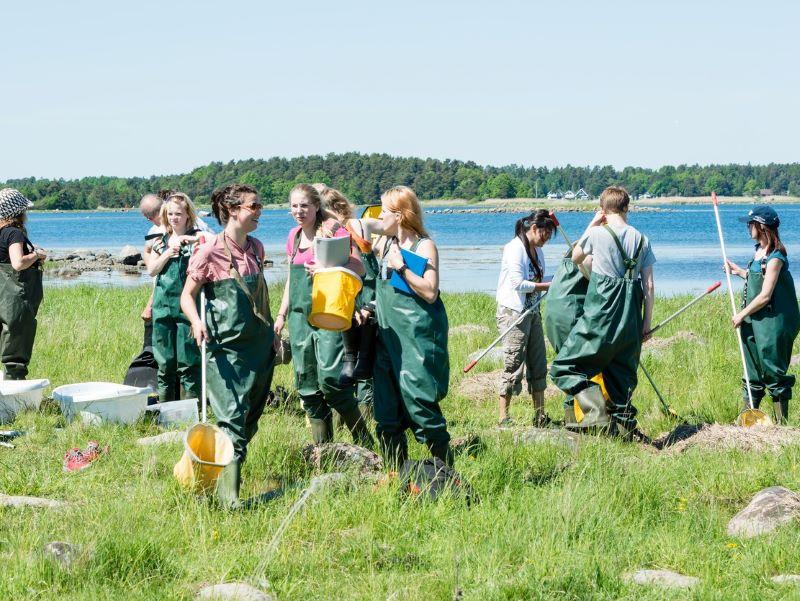
What higher education can learn from school and further education teaching

In the past, academic staff working in traditional universities might have expected that they just had to talk about relevant content and direct reading for learning to take place. But widened participation – alongside sizeable fee payments – has altered student needs and expectations. This change is reflected in the attention now given to analysing student engagement.
With this shift in responsibility for student learning and engagement, universities may find it useful to look to education providers that have always taken a more hands-on approach to supporting learning, namely schools and further education (FE) colleges. Good practice within schools and FE may offer some useful pointers for higher education. These include the following:
In-class activities and scaffolding
In school and FE, in-class activities are a key tool in classroom management, designed to keep students focused on a task for a good proportion of the lesson. But they are equally applicable in HE since research shows that learning by doing is more effective than passively listening.
In-class activities create opportunities to check learning progress at frequent intervals. Plus, asking students to explain concepts to one another helps embed what they have learned. So, activities that encourage cooperation and peer learning are recommended.
- Resource collection: Working with students to co-create their education
- If you want students to read more, consider asking them to read less
- From planning to delivering lessons: getting the basics right
Careful scaffolding of classroom activities so they gradually increase in difficulty and complexity supports student progress. This involves designing activities so that each component builds the student capacities that are needed to complete the next. While the UK QAA’s Framework for Higher Education Qualifications specifies the levels of subject-related cognitive abilities expected at each stage of a degree, the process of reaching these within a module programme needs to be gradual, with sub-level aspects being required first, eg, defining, listing and explaining, ahead of applied criticality.
For example, a scaffolded activity in a business degree may require students first to define elasticity (sensitivity of product demand to price or income changes), followed by a fleshing out of influence factors (the existence of substitutes and the necessity/luxury status of products). The activity could then require an analysis of the comparative performance of different well-known grocery retailers, using this knowledge.
Having alternative approaches at hand for each topic
After talking through the theory on a given topic, most higher education tutors will at some stage encounter a student indicating that it went completely “over their head”, with others nodding in agreement. This problem requires alternative approaches to teaching or fresh explanations. These alternatives may involve different media such as visual or audio, new examples, or a practical activity ahead of concept coverage.
An example might be covering political ideologies as part of the policy environment of a business sector. If the tutor were to present ideological concepts from political texts, it may draw the kind of response noted above. However, asking students to first highlight policies and laws they know to affect the sector or profession they specialise in, and then to speculate on why governments have introduced them, can guide students towards a practical ideological understanding before they read the formal literature.
Assessment writing frames
Assessment writing frames, which give students a structure to help them communicate what they wish to say, have long been associated with school and FE. However, since degree assessments usually involve sizeable written pieces, such as essays and reports, writing frames may be helpful on these courses early on. They can provide direction on how to approach a piece, clarifying key elements and giving guidance on sequence and balance. In line with scaffolding, the use of writing frames may diminish as a degree course progresses.
It is important to note that there is no single definitive way of producing a good answer to most questions at higher education level. Thus, there is scope for developing writing frames in class, with students contributing useful points. So writing frames may also support staff-student co-creation “in the curriculum”, helping students direct their own studies, as explained by leading co-creation authors Catherine Bovill and Cherie Woolmer.
Motivating feedback – criticism and praise
While university students are adults, their confidence and determination cannot be assumed. Most students are still young, with varied prior educational and cultural backgrounds and experiences.
In his popular book Teaching Today, multi-level practical teaching writer Geoff Petty notes how praise can be especially important in feedback on work of patchy quality, not only to highlight and develop well-written elements, but to encourage and motivate students. Petty notes that severe and comprehensive criticism seldom brings positive results. This thoughtful and compassionate approach to feedback certainly has a place in modern higher education.
There is scope for good practice from earlier levels of education to filter through to higher education since universities’ education departments usually include school-based teacher training courses and increasingly courses for post compulsory teaching. Within these departments, school and FE pedagogy is a focus of higher education scholarship. Universities’ discipline-specific faculties and schools should liaise with education departments in order to learn from their latest insights.
Russ Woodward, Tim Veal and Nicola Pattinson all teach business at University Centre Grimsby, part of the TEC Partnership.
If you found this interesting and want advice and insight from academics and university staff delivered direct to your inbox each week, sign up for the THE Campus newsletter.


